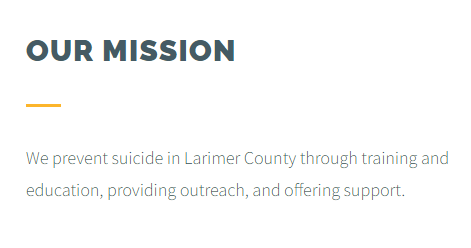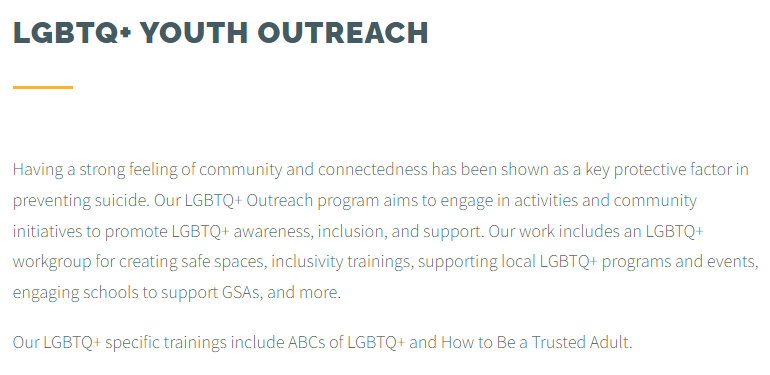
Poudre School District provides training to teachers on the “ABCs of LGBTQIA+”; provides training to teachers that promotes the idea of “Redistribution” and pushes “Discomfort”
- Español
- English
Incidents
Parents Defending Education submitted a public records request to the Poudre School District requesting documents and materials for professional development training classes for teachers and staff labeled as “ABCs of LGBTQIA+,” “Restorative Response and Discipline Matrix,” and “Culturally Sustaining Pedagogy.” PDE received numerous documents, including the dates for when these classes occurred over the past few years within the district.
The “ABCs of LGBTQIA+” class took place on eight occasions throughout 2021 and 2022. The “Restorative Response and Discipline Matrix” class took place on three occasions in that same time period. The “Culturally Sustaining Pedagogy” class also took place on three occasions during that time.
PDE received multiple documents labeled as the “course proposal” for the “ABCs of LGBTQIA+” class. Each proposal document appears to be for different classes at different times and locations. Each proposal states: “This course will educate staff about respectful language and inclusion for students in the LGBTQ+ community. History, definitions, and PSD policies will be reviewed. This supports classroom and school culture equity practices.” The following “objective” is then listed: “Participants will incorporate facts, terms, and understanding about gender identity and other LGBTQ+ topics into their repertoire.”
PDE has redacted the names of staff from the following documents.
A person named Silen Wellington was listed as a “presenter” in all of the proposals for “ABCs of LGBTQIA+” classes. The website for this person states: “Silen Wellington is a sculptor of sound, artist of people, genderqueer shapeshifter, storyteller, mercurial name collector, and lover, among other things.” Silen Willington’s SoundCloud account has the pronouns “they/them/theirs” listed.
The materials for the “ABCs of LGBTQIA+” class come from the organization “Alliance for Suicide Prevention in Larimer County.” The organization claims to “prevent suicide in Larimer County through training and education, providing outreach, and offering support” but places significant attention on “LGBTQ+ Youth Outreach.” The organization states that its work includes “engaging schools to support GSAs.” Training classes “include ABCs of LGBTQ+ and How to Be a Trusted Adult.”


One document PDE received from the school district was an outline of the “ABCs of LGBTQIA+” class. The outline explains that the class is 75 minutes and “includes information about different identities, the importance of language, statistics around LGBTQ+ youth suicidality, and how to be a better ally.” The following topics are then listed for the class:
- Why language matters & some statistics about LGBTQ+ suicidality
- Ways to be inclusive of non-heterosexual orientations
- Sex assigned at birth vs gender identity vs. gender expression
- Defining words such as: gender dysphoria, gender euphoria, deadname, transitioning, intersex, asexual, aromantic, Two-Spirit, queer, nonbinary
- Do’s & Don’ts with language around trans identity
- The importance of pronouns & explanation of they/them + neopronouns
- Resources for further learning
Another document from the Alliance for Suicide Prevention in Larimer County is a list of resources for district staff. Resources include links to the organizations GLSEN and Planned Parenthood, a link to a video “geared towards Spanish-speaking families of LGBTQ+ youth,” and a link to a Reddit page based on transgender topics.
Another resource document provided to PDE states: “Please share with students & others in your life as you see relevant.” The document then lists organizations that target children with LGBTQ issues. The document then states that “any classroom visits from outside organizations need to be run by [redacted].”
PDE also received a “proposal” document for the “Restorative Response & Discipline Matrix” class. The document states the following as an objective: “Participants will develop more competency and facility with use of the tool for the full range – from proactive and preventative to responsive – as well as deepen their knowledge of the foundations of restorative community building through a balanced approach to behavior instruction and discipline response.”
PDE received a presentation for the training class. The presentation lists areas of focus for staff. Two areas of focus are “understanding that traditional punitive discipline can be about power, creates a win/lose dynamic, & seeks to control kids” and “centering cultural affirmation & positive school climate at the heart of our work.” The presentation also encourages staff to use “liberatory thinking.” This is explained as pushing “us to think about what we want for students as a result of equity – beyond only working to stop the negative consequences of inequity.”
PDE additionally received several “proposal” documents for the “Culturally Sustaining Pedagogy” class. These documents list the following objectives for the class:
- Foundationally define Culturally Sustaining Pedagogy and Culturally Responsive Teaching in research, theory and action
- Deep dive into pillars of these concepts through dialogic and inquiry-based learning models
- Contextualize this work in PSD sites + district
- Skill growth in knowledge of concept and actions of enacting the PSD Principles of Community (ex. Courageous interruption of harm, curious questioning, willingness to learn EDI principles and antiracist pedagogy)
- Actionable outcome: Each attendee engages in authentic inquiry-based plan to explore, grow and commit to shifts in personal and professional practice
PDE received two presentations for the “Culturally Sustaining Pedagogy” class. One presentation starts with a “land commitment” and “mindful moment.” Another page of the presentation links to a resource labeled as “Principles of Equity Literacy.” This resource links to a document that promotes “Direct Confrontation” and “Redistribution.” For “Direct Confrontation,” this document states: “The path to equity requires direct confrontations with inequity—with interpersonal, institutional, cultural and structural racism and other forms of oppression.” For “Redistribution,” the document states:
Equity requires the redistribution of material, cultural, and social access and opportunity. We do this by changing inequitable policies, eliminating oppressive aspects of institutional culture, and examining how practices and programs might advantage some students over others. If we cannot explain how our equity initiatives redistribute access and opportunity, we should reconsider them.
Another resource in the presentation is a link labeled “Recognizing and Addressing Harmful Language.” The link goes to a website that argues the phrases “mom and dad” and “boys and girls” are offensive. The term “mom and dad” is considered “heterosexism.” For the phrase “boys and girls,” the resource explains: “As we learn more about the differences between biological sex, gender identity, sexual orientation, and gender expression, language becomes even more important. Saying things like, ‘they are really (born) a boy/girl’ is not only inappropriate, but also indicates a gap in understanding of the complexity of sex and gender.”

The other presentation for the class has attendees provide their “pronouns” and includes a “Land Acknowledgement.” This presentation also has a link to the “Principles of Equity Literacy” document and has an additional document linked labeled as “20 Things I will do to Be an Equitable Educator.” The following are some examples from that list:
- I will step out of my comfort zone by building a process for continually assessing, reflecting upon, and challenging my biases, prejudices, and socializations and how they influence my expectations for, and relationships with, each student, family, and colleague.
- I will review all learning materials, ensuring that they are free of bias whether in implicit or explicit forms. When I find bias in required materials I will encourage students to recognize and analyze it.
- I will teach about issues like racism, sexism, poverty, and heterosexism. Despite false perceptions that younger students are not “ready” for these conversations, I will begin doing so at the youngest ages. Students from marginalized communities already are experiencing these problems and witnessing their families experiencing them.
- I will reject the myth of color-blindness. As uncomfortable as it may be to admit, I know that I react differently when I’m in a room full of people who share many dimensions of my identity than when I’m in a room full of people who are very different from me. I must be open and honest about this reality, because those shifts inevitably inform the experiences of the people with whom I interact. In addition, colorblindness denies people validation of their whole person.
- I will offer an integrated equity-based curriculum, not just during special months or celebrations, but all year, every day.
- I will advocate for equity for all underrepresented or marginalized students. Equity is not a game of choice; if I am to claim that I am committed to equity, I do not have the luxury of choosing who does or does not have access to it. For example, I cannot fight effectively for racial equity while I fail to confront gender inequity. And I can never be a real advocate for gender equity if I duck the responsibility for ensuring equity for lesbian, gay, bisexual, transgender, and queer students. When I find myself justifying my inattention to any group of marginalized people due to the worldview or value system into which I was socialized, I know it is time to reevaluate that worldview or value system.
The presentation also included an “identity map” for staff. The map is a diagram with a person’s name in the center with branching characteristics. These characteristics include “gender,” “ethnicity,” “sexuality,” “race,” and “religion.”
PDE also received a document titled “Equity in Practice Guidelines.” One guideline is to “Experience Discomfort.” The document explains: “When talking about something that is not usually a part of daily conversation, it is natural for some people to become uncomfortable. We are not surprised when we (or others) feel uncomfortable, but we do not try to rescue one another from the discomfort. It’s a learning process, and it becomes natural only through experience.”
Another document PDE received is titled “Principles of Community.” The district explains in the document: “We co-create welcoming and safe environments that ensure dignity and affirmation.”
Stay Informed
